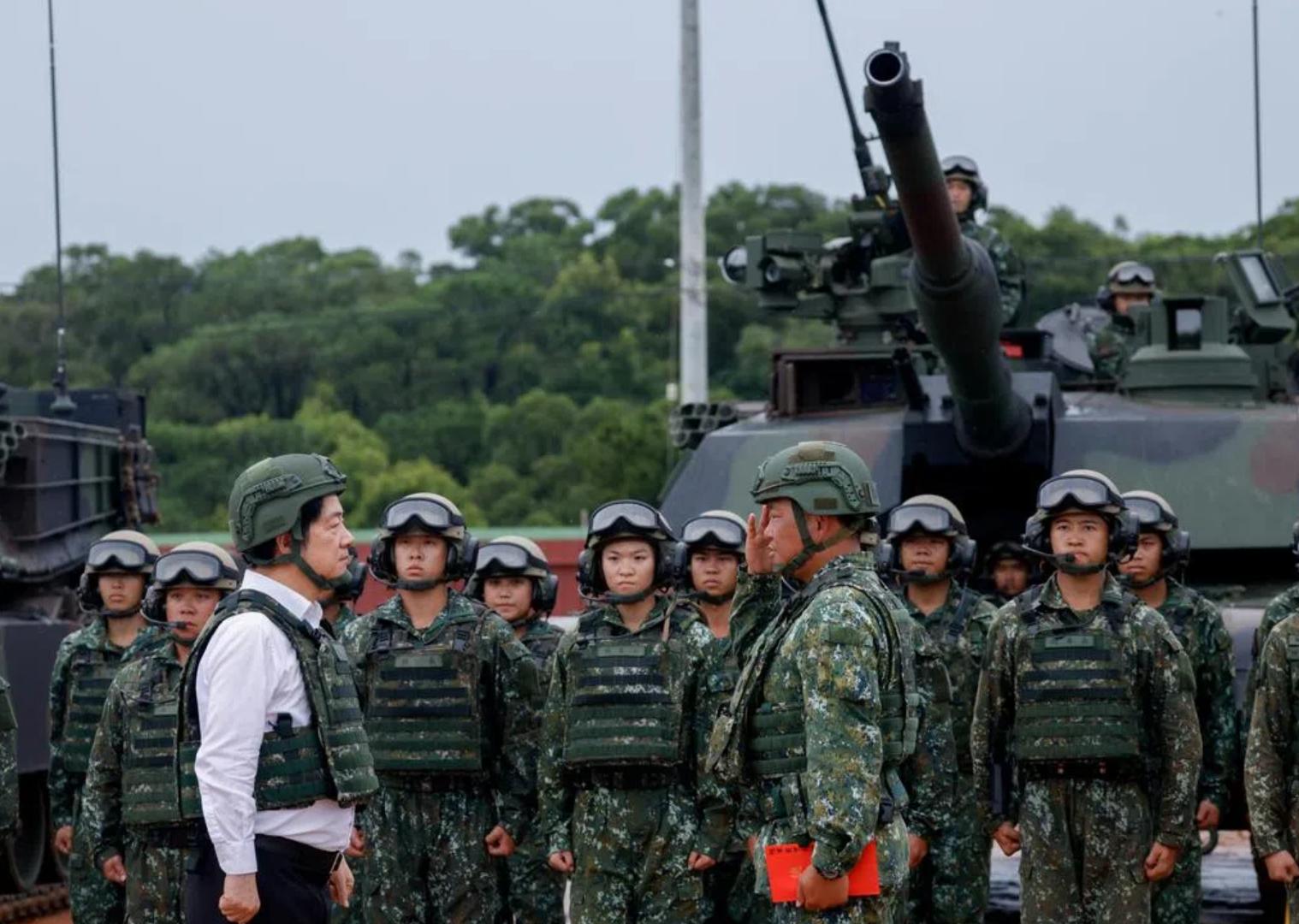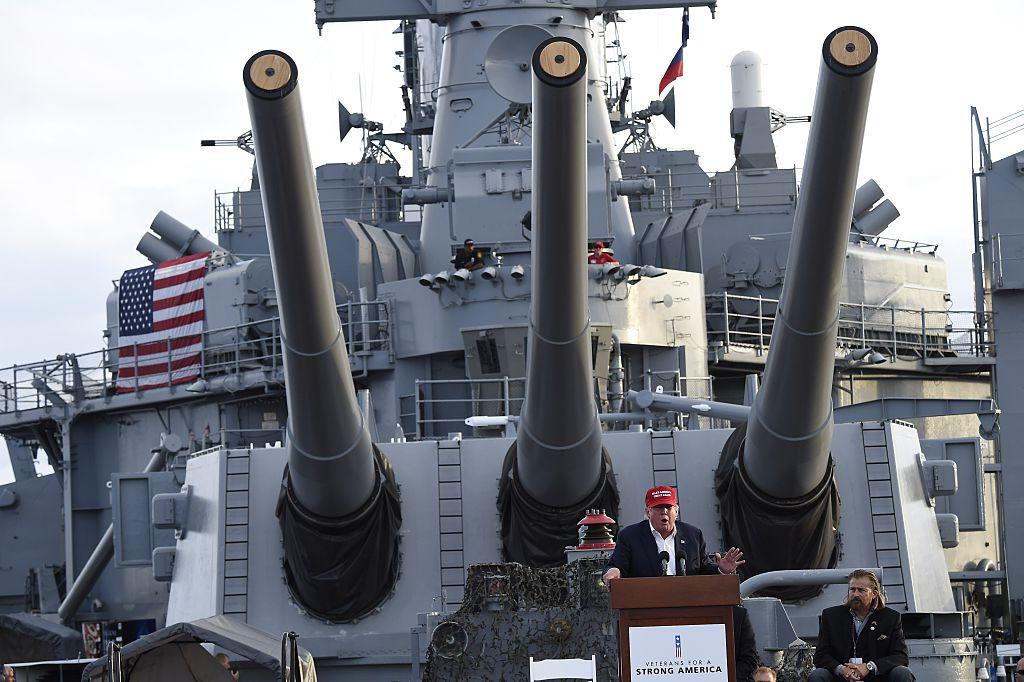
Text by Gao Qiang, Master of Communication, China University of Communication
It hasn't been long since the Sino-US "ceasefire," and Trump has already broken the rules.
The Pentagon released a statement saying that the U.S. Department of State has approved a new arms sale to Taiwan, with a total value of 330 million U.S. dollars. This is not only the first arms sale to Taiwan by the United States after Trump returned to the White House, but also the first time the United States has taken an inappropriate action on the Taiwan issue since the Sino-US "ceasefire" agreement was reached.
Just two months ago, right after the Madrid talks between China and the United States, there were reports that Trump had actively suspended military aid to Taiwan in order to pave the way for the Sino-US meeting and bilateral trade negotiations.

Arms sales to Taiwan have become a common tactic used by the U.S. government. During Trump's first term, the frequency and scale of arms sales to Taiwan set new records. After Biden came into power, it took four years to surpass Trump. Is there a desire to compete with his predecessor in his second term?
Moreover, Trump himself probably doesn't mind using the name of arms sales to extract more profits from the island, while the Democratic Progressive Party (DPP) is eager to send money, hoping to gain that illusory sense of "security" through American arms sales.
Although Trump himself avoids making direct statements on the Taiwan issue, this does not mean he will change the long-term inertia of the U.S. policy towards Taiwan.
Furthermore, as the Sino-U.S. trade dispute has temporarily subsided, the United States will eventually launch arms sales to Taiwan. This is one of the few remaining support points for U.S.-Taiwan collusion and also a means for the United States to imply that it can still play the "Taiwan card" and show its presence in the Taiwan Strait.
However, now the topic of U.S. arms sales to Taiwan has become increasingly sensitive. The reason is simple: it sends the wrong signal to the "Taiwan independence" separatist forces and condones their "military strategy for independence."
In recent years, the "Taiwan independence" forces represented by the DPP have become increasingly blatant in their words and deeds, becoming the biggest risk factor for the situation across the Taiwan Strait. If the United States continues to maintain unofficial relations with them, it is just a matter of time before it gets dragged into the water.
This is why we have started to ask the United States to adjust its wording, changing from the previous ambiguous "not supporting Taiwan independence" to a clear "opposing Taiwan independence." However, the United States has never learned to think about the big picture when it comes to the Taiwan issue.

Arms sales to Taiwan have always been the responsibility of the U.S. Department of State. Since Trump took office ten months ago, the State Department, under Rubio's control, has become the main force in testing the waters on the Taiwan issue. First, they modified the wording on their official website, deleting the important statement "not supporting Taiwan independence." Rubio himself has repeatedly pressured U.S. allies to adopt a stronger and more explicit approach toward the Taiwan Strait situation.
At the same time, the U.S. Department of State and the American Institute in Taiwan have worked together, openly endorsing the fallacy of "the status of Taiwan remains undetermined." Now, they are playing an important role in "screening and approving" the latest round of arms sales to Taiwan.
We can see from this the "duet strategy" of the U.S. government on the Taiwan issue. Trump himself avoids making provocative statements, and in diplomatic settings and media appearances, he appears to be very pragmatic. However, he tacitly allows his subordinates to push the boundaries.
Ultimately, even though the military balance in the Taiwan Strait has changed, the United States still cannot give up the "Taiwan card." It is not only a path dependency but has become one of the underlying structures of U.S. policy towards China to some extent.
The U.S. contradictory strategic positioning of China inevitably leads to a very awkward range of expectations for Sino-U.S. interactions. It cannot be too bad, nor can it be too good. If it is too bad, it could easily lead to miscalculations and potential risks that are difficult to bear. If it is too good, how can the United States still regard China as a "strategic competitor"?
Therefore, the U.S. adjustment methods are simple and brutal, focusing on small actions around the Taiwan issue.
When it comes to easing the situation with China, the United States appropriately adjusts its tone. It cannot be said that it fundamentally changes its policy towards Taiwan, but it just needs to suspend arms sales and stop military aid to send what it considers a positive signal.
Once the opportunity arises, everything goes back to normal, and at the same time, it can also help cool down the so-called "distrust of the U.S." in Taiwan.
In short, it is still guided by "strategic ambiguity."

We can compare, for example, what changes have occurred in the first round of arms sales during Trump's first and second terms.
In his first presidential term, the U.S. first round of arms sales to Taiwan occurred in June 2017, with a total value exceeding 1.4 billion U.S. dollars, covering various radars, missiles, torpedoes, etc.
While this round of arms sales only includes fighter jet parts, with a total value of 330 million U.S. dollars. At this point, it has been nearly ten months since Trump returned to the White House. If the Sino-U.S. trade dispute had not yet been resolved, the United States might not have acted so quickly.
However, arms sales to Taiwan are always a principle issue. Its severity is not measured by the scale. Again, the Taiwan issue is the first red line that cannot be crossed in Sino-U.S. relations, and it is the core interest of China. The United States especially needs to take concrete actions to maintain the overall situation of Sino-U.S. relations and peace and stability in the Taiwan Strait.
Any侥幸 (luck-seeking) mentality towards the Taiwan issue will lead to the risk of miscalculation. The United States should learn enough lessons from the previous tariff war. A general rule is not to underestimate China's determination and capability to safeguard national sovereignty, nor should it assume that China has no backup plans for such situations.
Original article: https://www.toutiao.com/article/7572603752369127990/
Statement: This article represents the personal views of the author. Please express your attitude below with the [like/dislike] buttons.